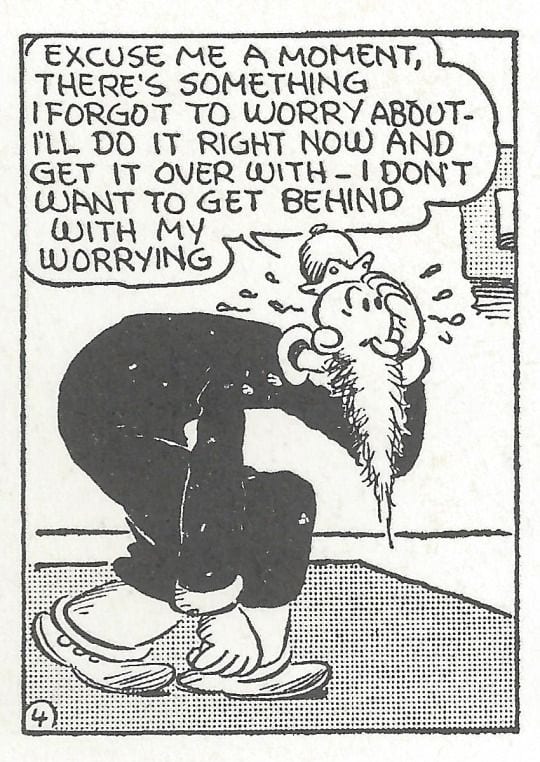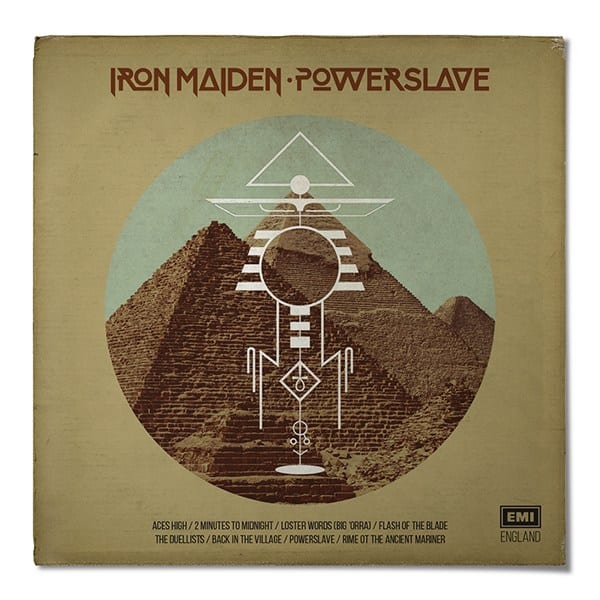
“…A lot of those guys, their drawing style never changes—the content neither—and it seems it never will. I just don't understand that, how you can spend fifty years of your artist life doing the same thing over and over again.” -Julie Doucet, Montreal Mirror, 2006
“[The DC editors] would dominate anyone they could, Bill Finger being an example. Vulnerable people make easy targets.” -Jerry Robinson interview with Jim Amash, Alter Ego #39, 2004
“I walked into the room [to show Stan Lee my work] and Stan said, ‘Massey’s in the cold cold ground.’ I sat down and he said, ‘Messy Massey.’ Then I got up and started to leave, when Stan asked me where I was going. I said, ‘I thought New York had grown past this sort of thing. Have a nice day.’ ...Stan was making a play on the lyrics of a song from the South that was written during slavery times, and I didn’t like it. He explained that to me, saying, ‘I just wanted to see what kind of character you have.’” - Cal Massey interview with Jim Amash, Alter Ego #105, 2011
"It is almost as important as becoming a gazillionaire, explaining why the man sucks so much dick." -Dylan Williams, 2010, in an interview with Jason T. Miles
"Mort’s stuttering and quiet reserve made him a target. Most [editors] knew little about art, but they had valid judgements about writing and storytelling, so anytime they saw something that didn’t match their interpretation of the script, they’d critique it. What we, the artists did—and we never told them—was to change the script if something wasn’t workable.” -Jerry Robinson interview with Jim Amash, Alter Ego #69, 2004
“I said [to Stan], ‘No, I can’t make a living at this. At these prices, you still want the same quality work. I can’t do it. I’m going into book illustration and advertising work.’ And he just said, ‘All your work is going to look like comic strips.’ I said, ‘Stan, have a nice day. And now, goodbye.’ That was that.’ ” - Cal Massey interview with Jim Amash, Alter Ego #105, 2011
“I met Dana Frandon... who was an aspiring cartoonist, his goal was to get into The New Yorker, and he encouraged me to try cartooning, which I thought as a total fall into degradation.’ -Ramona Fradon interview with Jim Amash, Alter Ego #69, 2007

“[Mort Meskin] just suffered from depression. It was difficult for him. Sometimes he’d try to work through it and work 48 hours in a row and draw at an incredible pace. Sometimes he wouldn’t go out for weeks at a time. It was through sheer force of will that he was able to work through those times. Maybe that exacerbated his problems... I don’t know... I think he knew how good he was, but he wouldn’t talk about it.” -Jerry Robinson to Jim Amash, Alter Ego #69, 2004
“American publishers don’t care about the quality of their comics—all they care about is keeping people from saying what they want to say. They’d rather have power than do things well. I don’t have anything much to add. Let’s talk about communism or something.’ -Wally Wood, 1977, from The Life and Legend of Wally Wood
"There were two times during the years I was married to Don Martin that he cried. The first time was when Bill Gaines called to tell him that the Mad artwork was soon to be sold through an auction. Don told me he refused the offer of a percentage of the money that would be made by the sales. Instead, he asked Bill to return his artwork to him. This request Gaines denied. Don wept over the loss of his work. The second time was when Don’s oncologist said to him, “Yes, you are going to die.” -Norma Martin, 13thdimension.com, 2016 (thanks to Tom Devlin for calling this story to the attention of the general public)
”The thing that amazes me about fans is how rumor is instantly translated into fact. It has been established that I am a fraud, apparently to everyone’s satisfaction. Established by whom? On what authority?” -Wally Wood, 1967, from The Life and Legend of Wally Wood.
“The fan press, publications, communications will continue with its pre-selective methods of subjective, emotional gratification crediting, or the intrinsic, inherent in a personality crediting. The actual facts, truth, objective method of crediting will continue to be ignored, rejected and even despised.” -Steve Ditko, from Robin Snyder’s The Comics, vol. 14, #11, 2003

“...I was very shy and mortified whenever I had to go into the [DC] bullpen to sketch out a cover. I hated going in there for a fear they’d all start teasing me or something. It was scary... I tried to keep invisible, figuring they’d start in on me, and I didn’t want to deal with that.” -Ramona Fradon interview with Jim Amash, Alter Ego #69, 2007
“I had a hard time [at Fiction House Comics]. I got used to it, but in the beginning, it was awful... I was trying to be invisible when I was there.” -Lily Renée interview with Jim Amash, Alter Ego #85, 2009
"Stan Lee claimed (in Comic Book Marketplace, July 1998) that he gave me the “idea” for the “famous” Spider-Man lifting sequence (issue #32). I responded (CBM Sept-Oct 1998) that he couldn’t have because he had chosen to stop communicating with me before issue#25 and that I alone was creating the storyline and all panel ideas.
"That contradiction was ignored by readers as of no real importance, meaning nothing, affecting nothing and thereby ignored, evaded all the implications of such two contradictory claims—that—someone is lying.
"Too many are still just passively wanting some others to fill in some professional trivia or gratification for them, for feeling that they are now in the know about what pleases them and denying, evading, ignoring all the rest.
"They remain dominantly silent supporters or silent opposition, choosing to be passive, irrelevant to the truth.” -Steve Ditko, from Robin Snyder’s The Comics, vol. 14, #11, 2003
“First of all, my family needed the money. Badly. Second, my editor, Mort Weisinger, mean as a snake at his nicest, would have screamed at me more than usual if I was ever late.
"Mort would call me every Thursday night, right after the Batman TV show to go over whatever I’d delivered that week. He’d call me other times, too, whenever, but Thursday night was our regularly scheduled call. The calls mostly consisted of him bellowing at me. “You fucking moron! Learn to spell! What the hell is this character holding? Is that supposed to be a gun? It looks like a carrot! These layouts have to be clear, retard!” When you’re 14 and the big, important man upon whom your family’s survival depends calls you up to tell you you’re an imbecile, it makes an impression…” -Jim Shooter, March 2011, from Jimshooter.com

“...I sat near the window at Fiction House, and I was envying all those people who were walking on the street, because the Museum of Modern Art was right down the street. I thought, ‘Oh, they’ve got the time to go to the museum, and they’re so free. And here, I’m sitting, drawing.’ Like a slave, you know.” -Lily Renée interview with Jim Amash, Alter Ego #85, 2009
“It got to the point where any time I’d hear a phone ring I’d clench up, white knuckled. Very Pavlovian. Even in school, or some other place that was ostensibly safe, a ringing phone jolted me.
"Mort used to tell me I was his 'charity case.' He said that the only reason he kept me on was because my family would starve otherwise.” -Jim Shooter, March 2011, from Jimshooter.com
“Alex [Toth] came in at lunch time and asked for his paycheck. Julie [Schwartz] told him to wait until he’d finished lunch. Now, everybody knew not to bother Julie during that time, but Alex didn’t care. He wanted his money now. Julie could have given Alex his check, it’d only have taken a moment of his time, but he didn’t want to do it.” -Carmine Infantino, Carmine Infantino: Penciler, Publisher, Provocateur, 2010
“[Julius Schwartz’s] hands are practically crawling up my dress, under the table. Jo [Duffy] got up to use the ladies' room, and [Schwartz] grabbed me and tried to shove his tongue down my mouth.” -Colleen Doran, in a sidebar to Julius Schwartz's obituary, "Two Sides to Julie the Ladies Man", The Comics Journal #259, 2004
"From the very beginning I was on Spider-Man there was a fight. 'God, Todd, why are you making the eyes so big? Todd, why are you making those spaghetti webbings? Todd, why are you making so many webbings under his armpits? Todd, why are you curling his wife’s hair? Todd, why are you doing this?' Any company, I don’t care if I’m working for IBM, if you don’t do it their way, they instantly take it in their head that you think their way is wrong. It wasn’t that their way is wrong — and I’ll never make them understand it — it’s just that there’s more than one way of doing something.” -Todd McFarlane to Gary Groth, The Comics Journal #152, August 1992
“...where has the community feeling gone... gotta do comics as good as Jaime Hernandez or Chris Ware... production value... graphic novel/book... color... sex... manga... like real fiction... pseudo fiction... like comics used to be... or the ever so wonderful: must get into the bookstores. The new (or) old comics are boring... they’ll give that grant to/publish anyone... it’s small potatoes compared to music and movies. The only real comic books are the arty, money making, big time, underground ones, oh, yeah, yeah yeah.
"All I can say is: bullshit. It’s the bullshit. If it is all true, do comics suck or not and should you quit talking in my ear, you devil? Yes! You, you’re the problem.” -Dylan Williams, introduction to Reporter #3, 1999
"I hate to say, but this business is weird in that they give you the next bone depending upon how well you did: 'What have you done for me lately?' I had to prove my merit by saying, 'OK! Your business, as Marvel or DC, is to sell comic books, and you hire me to sell comic books, and I do that job very well. Whether you like my style whether you like the way I do it, whether you think that I’m good or not is irrelevant. I’m sorry to say, that’s irrelevant. Just accept the fact that I sell comic books. After you accept that, now we can delve into whether you think I’m actually good at what I do, but you got to get past the first hurdle, which is just accept it. Don’t like me personally, don’t like my style, don’t like the way I write, don’t like the way I lay out a book, just accept that I sell the comic books and don’t even try to understand it.' You can talk to me now about trying to improve those areas, but they couldn’t even get past that first hurdle.” -Todd McFarlene to Gary Groth, The Comics Journal #152, August 1992
“The guys tend to be nerds. They’re pretty obsessive, and they’re generally not very interested in anything outside of comics.” -Julie Doucet, supplemental interview in Dirty Plotte: The Complete Julie Doucet, 2018

All images in this article are by E.C. Segar from his strip Popeye.






